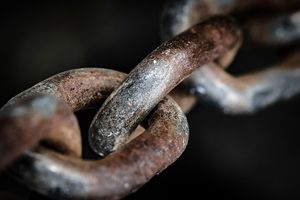Zimbabwe’ a nation falling apart
How does one describe Zimbabwe today? We no longer pay close attention to inflation figures – November’s were quoted as 10,000-14,000% (yes, the zeroes are correct!). There is no end in sight to the economic collapse.
The street assessment is that those in power are making so much corrupt money out of the disastrous situation that there is no desire to change it. Why kill the goose that lays the golden egg – even if that goose gobbles up the common people?
The country’s infrastructure is falling apart. Daily power and water cuts are the norm. The roads are littered with tyre-bursting pot-holes. The phone system is hit or miss, even cell phones are suffering from price regulation. There are shortages of skilled personnel and materials.
Black market
Recent extreme governmental measures to control commodity prices have emptied supermarket shelves of staple foods and led to a flourishing black market. Hospitals, schools, roads, water supplies, local government, police services – the list of services in deterioration goes on and on.
Then consider the people. Here I find even greater cause for concern. Zimbabweans are generally happy, polite and positive. I see that changing. A friend commented recently that as he sees Zimbabweans living in survival mode, increasing energy is poured into day-to-day survival and less into helping others. They are becoming more self-centred. I see this reflected on our roads – less concern for other drivers and attention to road rules – and in corruption at all levels of society.
Survival mode means that life is stripped of its colour and vitality – of kindness, generosity and fun times. It has become grey. The deteriorating school system is causing the minds of children to become likewise, well – grey! Bright, living colour has gone, the thrill of learning replaced by poorly presented lessons, within poorly maintained classrooms, taught by poorly paid teachers.
Our children are growing up thinking that in education doors are not supposed to have handles, broken window panes are not supposed to be replaced, and not all children are supposed to have books and pencils.
Recklessness
Family relationships are under tremendous strain. The dispersion of people due to economic hardships has created ‘diaspora widows/widowers’ and ‘diaspora orphans’. We see an increasing distance between teenagers and parents. There is a greater recklessness amongst our youth – a seething rebellion.
Our national personality has been deeply affected. My view is that long after any roads might be repaired, electricity supplies restored, hospitals replenished with medicines, and other longed-for social improvements, our national psyche will be languishing from long-term injury and bruising.
Burdens
What of the future? Who can tell? Only the One who rules the affairs of nations and holds kings’ hearts in his hand.
We are grateful for all who continue to try to make a difference. There are brave, resilient souls in the political arena trying to maintain a viable opposition. There are compassionate, committed people within the deteriorating structures of education and health. There are sensitive, dedicated individuals working within the social sphere. And there are godly, sacrificial men and women ministering within the churches.
There are some people like this, and for these we are grateful. But there are fewer and fewer of them as the burdens and pressures grow worse. Our country has enormous potential and it is the present tragedy that it remains just that and nothing more – potential.
We continue to look to God, seek to serve him, and obey the injunction, ‘Dwell in the land, trust in the Lord and do good’. But I would be lying if I told you that we are all upbeat and optimistic. People continue to leave the country, taking with them skills and resources so desperately needed here. One cannot blame them, but the strain of continuing falls on fewer and fewer shoulders.
This article is extracted and edited from an e-mail. Author’s details withheld.




















